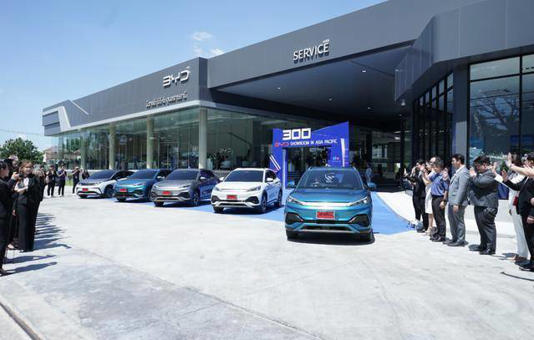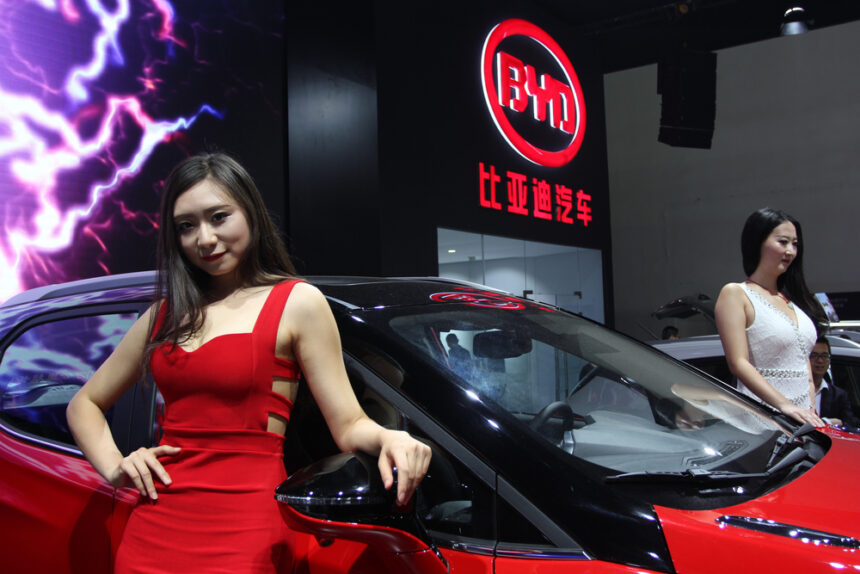Bangkok, June 22, 2024 – BYD celebrated a significant milestone with the opening of its 108th store in Thailand, marking its 300th in the Asia-Pacific region. This expansion underscores BYD’s commitment to the Thai market and highlights the growing influence of Chinese electric vehicles (EVs) in the region. Ke Yubin, Assistant General Manager of BYD Asia-Pacific Auto Sales Division and General Manager of BYD Thailand, announced plans to establish over 150 stores across all 77 provinces in Thailand by 2024.
Thailand’s automotive market is rapidly shifting towards electrification. In 2023, 400,000 passenger cars were sold, with EVs accounting for 18% of the total. The number of registered pure EVs in Thailand skyrocketed to 76,000, a 700% increase from 2022, while registrations of traditional fuel vehicles dropped by 13.30%.

BYD’s success is evident in the local market dominance of its Dolphin and Seal models, which together hold over 32% market share. This trend is part of a larger phenomenon where the top seven best-selling EV models in Thailand are all Chinese-made.
Meanwhile, Japanese automakers are struggling to maintain their foothold. Suzuki and Subaru have announced the closure of their factories in Thailand. Suzuki will shutter its Rayong province plant by the end of next year, citing failure to meet production targets and a strategic pivot to EV and hybrid production elsewhere. Subaru’s ongoing losses and production inefficiencies have similarly led to the decision to close its Thai factory.
Industry experts attribute the rise of Chinese EVs to supportive Thai government policies and substantial Chinese investments. The Thai government will offer purchase subsidies of up to 100,000 baht per NEV from 2024 to 2027, further boosting the NEV market. As domestic NEV subsidies decline in China, Chinese manufacturers are intensifying their focus on international markets.
The automotive landscape in Thailand is undergoing a significant transformation. Chinese EVs are rapidly gaining market share, while Japanese automakers are re-evaluating their strategies in response to these changing dynamics.

